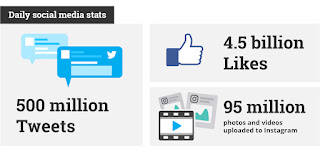Google warns about links in large-scale article campaigns
Lately, we've seen an increase in spammy links contained in articles referred to as contributor posts, guest posts, partner posts, or syndicated posts. These articles are generally written by or in the name of one website, and published on a different one.
Google does not discourage these types of articles in the cases when they inform users, educate another site’s audience or bring awareness to your cause or company. However, what does violate Google's guidelines on link schemes is when the main intent is to build links in a large-scale way back to the author’s site. Below are factors that, when taken to an extreme, can indicate when an article is in violation of these guidelines:
- Stuffing keyword-rich links to your site in your articles
- Having the articles published across many different sites; alternatively, having a large number of articles on a few large, different sites
- Using or hiring article writers that aren’t knowledgeable about the topics they’re writing on
- Using the same or similar content across these articles; alternatively, duplicating the full content of articles found on your own site (in which case use of rel=”canonical”, in addition to rel=”nofollow”, is advised)
When Google detects that a website is publishing articles that contain spammy links, this may change Google's perception of the quality of the site and could affect its ranking. Sites accepting and publishing such articles should carefully vet them, asking questions like: Do I know this person? Does this person’s message fit with my site’s audience? Does the article contain useful content? If there are links of questionable intent in the article, has the author used rel=”nofollow” on them?
For websites creating articles made for links, Google takes action on this behavior because it’s bad for the Web as a whole. When link building comes first, the quality of the articles can suffer and create a bad experience for users. Also, webmasters generally prefer not to receive aggressive or repeated "Post my article!" requests, and we encourage such cases to be reported to our spam report form. And lastly, if a link is a form of endorsement, and you’re the one creating most of the endorsements for your own site, is this putting forth the best impression of your site? Our best advice in relation to link building is to focus on improving your site’s content and everything--including links--will follow (no pun intended).



Comments
Post a Comment